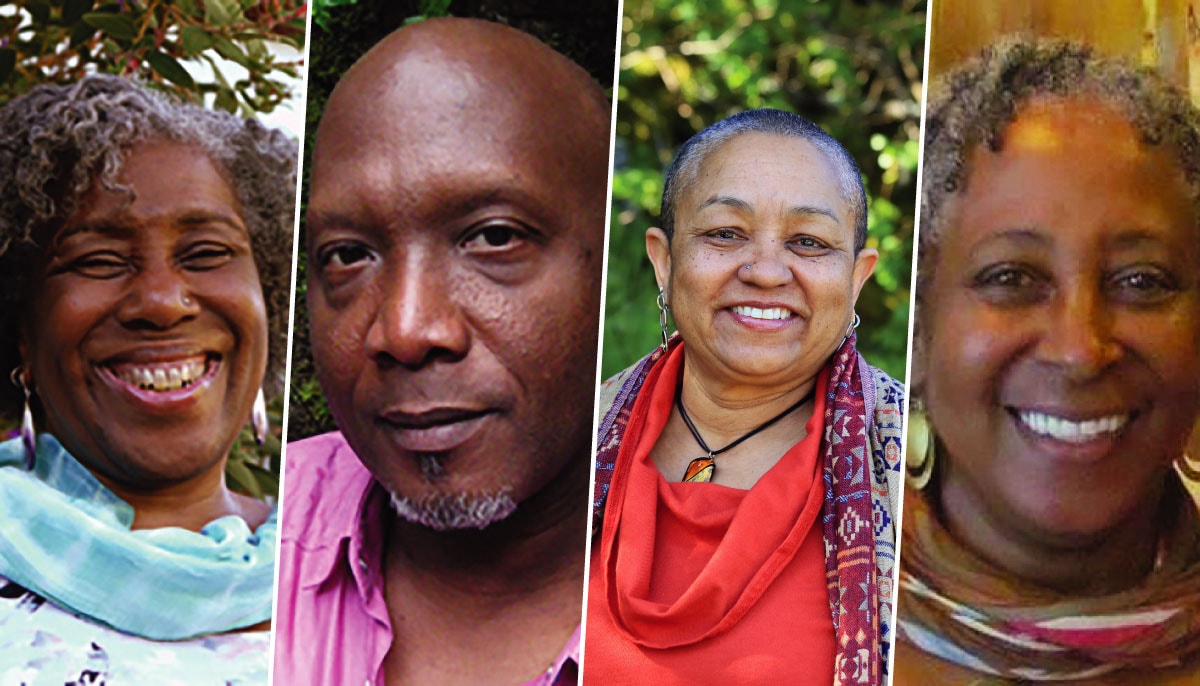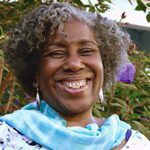Our presence here means the presence of all our ancestors. They are still alive in us. Every time we smile, all the generations of our ancestors, our children, and the generations to come—all of whom are within us—smile too. We practice not just for ourselves, but for everyone, and the stream of life continues.
—Thich Nhat Hanh
Today, we are witnessing much greater diversity among people coming to Buddhist centers throughout the country. As people of color in particular enter into the sanctuary of convert Buddhist communities, many are seeking refuge from the tumultuous political landscape and uptick of racial hatred that has gripped the psyche of our nation. This has catalyzed people to explore meditation practices as a way to alleviate both individual and collective trauma.
In this light, we need to examine and clarify what is being taught in Buddhist communities today. Then we will have an understanding that allows for changing and including what needs to change to address societal suffering. This will serve to provide a clear impact on the issues Buddhism addresses and how it is taught over the next forty years.
Today, dharma talks by white Buddhist teachers rarely if ever address the social, political, and cultural ills that are plaguing communities of color, and indeed any community that is seeking ways to heal and witness its own legacy of woundedness. In fact, the failure to address these wounds often triggers more emotional trauma, because that which is absent, unspoken, and unseen makes it more glaring.
What if Buddhist teachings addressed these personal and collective wounds? What if Buddhism in one of its aspects was devoted to their healing? Can we sit together in a multicultural community and address forgiveness, love, and the necessity to embrace those who are under attack, whether it be economically, socially, or emotionally? Is this the path of freedom in coming decades?
The Buddha worked with all types of people in many conditions, and it is so important to keep that consciousness at the forefront of these discussions. The Buddha is often referred to as the first psychologist and as the great physician. He worked with the lower castes in India to extend respect, acceptance, and love, thereby cultivating the conditions for healing for those who lived in poverty and were not accepted, meeting them where they were, trauma included.
The privileges that many are afforded have caused a blindness and a turning away from the suffering of others, specifically marginalized communities. Yet we all have ties to suffering; it is our one common human experience. It is imperative that Buddhist practitioners stand in the gap of our separation, reach back, and ponder how to heal the trauma of ourselves and others through the lens of mindfulness, loving awareness, wisdom, and compassion.
One of the things that isn’t seen in Buddhism today is a commitment to collective healing. The emphasis has been awakening in the individual realm—sitting in retreat, being taught that enlightenment can be achieved through our solo practice. This is contrary to most indigenous cultural beliefs, which are grounded in community.
In this gap lies the tension between enlightenment in a silo versus nonseparate wholeness. If the goal is to heal the suffering of the world, our perspective will eventually move away from a dominant-culture, silo-oriented focus to an inclusive Buddhism that integrates wisdom, compassion, and community.
However, it seems that many Buddhists today are not very interested in the woundedness of others. Will healing that trauma be an important focus of the Buddhist message in the future?
We believe it must be, particularly if Buddhism is to engage and benefit people of color and members of other communities that have suffered the traumas of oppression and marginalization. Can we really expect people to be able to practice with any depth and intensity until they’ve healed enough to have the capacity for tolerating being in the body, being with the mind and heart, untethered from ego identification? There is an increasing number of people coming to Buddhism today with lots of complex unresolved trauma, and for some, are unable, uncomfortable or causing more harm by sitting in their own bodies.
We cannot project what Buddhism’s message will be forty years in the future without acknowledging the living experience and necessary transformation of Buddhism today. What must be addressed is a paradigm shift that reflects an inclusive Buddhism, one that values the collective as well as the individual, that promotes healing as a necessary first step to awakening. It is a Buddhism that is inspired by Buddhist tenets, but also by diverse voices that mirror practitioners’ right to be seen and heard.
When a diverse community is met at the door of awakening, a change of mind, a change of heart, and a change of modalities becomes apparent. Fusing other ancient wisdom traditions with Buddhist teachings, there must be work done to address and heal commonly unseen wounds and cultural conditioning that are often the impediment to clear view and to untangling suffering.
Healing trauma, raising up social justice activism, bringing awareness to the feminine presence within the Buddhist historical landscape, and the strong influence of diverse Buddhists now taking the mantle of leadership—the direction of change is no longer elusive. When we acknowledge and heal wounds, when we teach from intention for inclusion, transparency, and contemporary narrative, and when we bear witness to suffering with a cultural, historical, and societal lens, no one is left out.
We are well past the critical time of choice; we are headed strongly into a paradigm shift that will change Buddhism in the West and its message. It is the inclusive sangha that can guide us along this path of unchartered territory, this depth and expansion of understanding born of ways of knowing that create a deeper, richer, illuminated path home.

